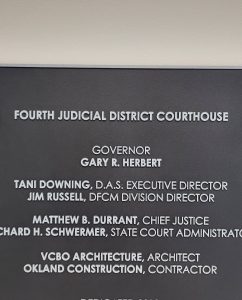



 CALL/TXT UTAH CRIMINAL INVESTIGATION AND RECORDS EXPUNGEMENT LAWYER—JAKE GUNTER
CALL/TXT UTAH CRIMINAL INVESTIGATION AND RECORDS EXPUNGEMENT LAWYER—JAKE GUNTER
HE CAN TELL YOU OVER THE PHONE IN 5 MINUTES IF YOU CAN EXPUNGE YOUR RECORDS.
QUESTION: I was charged, but the criminal case was completely dismissed before I even went to court? Can I expunge these investigation records?
ANSWER: YES. The following are common investigative or dismissed types of criminal expungements in Utah.
(1). Pleas in Abeyance. The most common expungement are criminal convictions where charges are filed and convictions entered, but later expunged. If you entered a plea in abeyance, the waiting period is 30 days after the case successfully closes.
If a conviction entered the waiting periods for eligible cases are:
Felony: 7 years.
Misdemeanor A. 5 years.
Misdemeanor B. 4 years.
Misdemeanor C. 3 years.
Infraction. 3 years.
Pleas in Abeyances. 30 days after probation ends and case closes successfully.
(2). Charges Filed, but Dismissed. Less common, but equally important is where criminal charges are filed, but dismissed due to lack of evidence, uncooperative witnesses or just the prosecution didn’t want to go forward.
Waiting periods for cases filed, but dismissed without prejudice is: 
(a). 180 days since the dismissal without prejudice, or
(b). A letter of declination is obtained from the prosecuting attorney indicating they are not going to file charges.
(3). Investigation Only. Police Encounters. Less common is when police investigations occur, but no charges are even screened or charges are declined to be filed by the prosecutor. See Utah Code 77-40a-302.
Waiting periods to expunge investigations are:
(a). Dismissed with prejudice. All charges in the case are dismissed with prejudice after being filed;
(b). Declination letter. If a charge in the case is dismissed without prejudice or without condition: AND the prosecuting attorney consents in writing to the issuance of a certificate of eligibility; or at least 180 days have passed after the day on which the charge is dismissed;
(4). Jury or Judge Acquittal After Trial. Not related to pure investigation expungements, when you are acquitted by a judge or jury, you are eligible for an expedited expungement processing. You go to the front of the line at the Bureau of Criminal Identification.
(5). Statute of Limitations Passes. When the statute of limitations has passed on a criminal investigation, you can immediately expunge all investigation records.
See this article on common Utah criminal statute of limitations time periods.
CALL/TXT UTAH EXPUNGEMENT ATTORNEY JAKE GUNTER (801) 373-6345. FREE CONSULT. HE CAN TELL YOU OVER THE PHONE IF YOU HAVE A CASE IN 5 MINUTES.